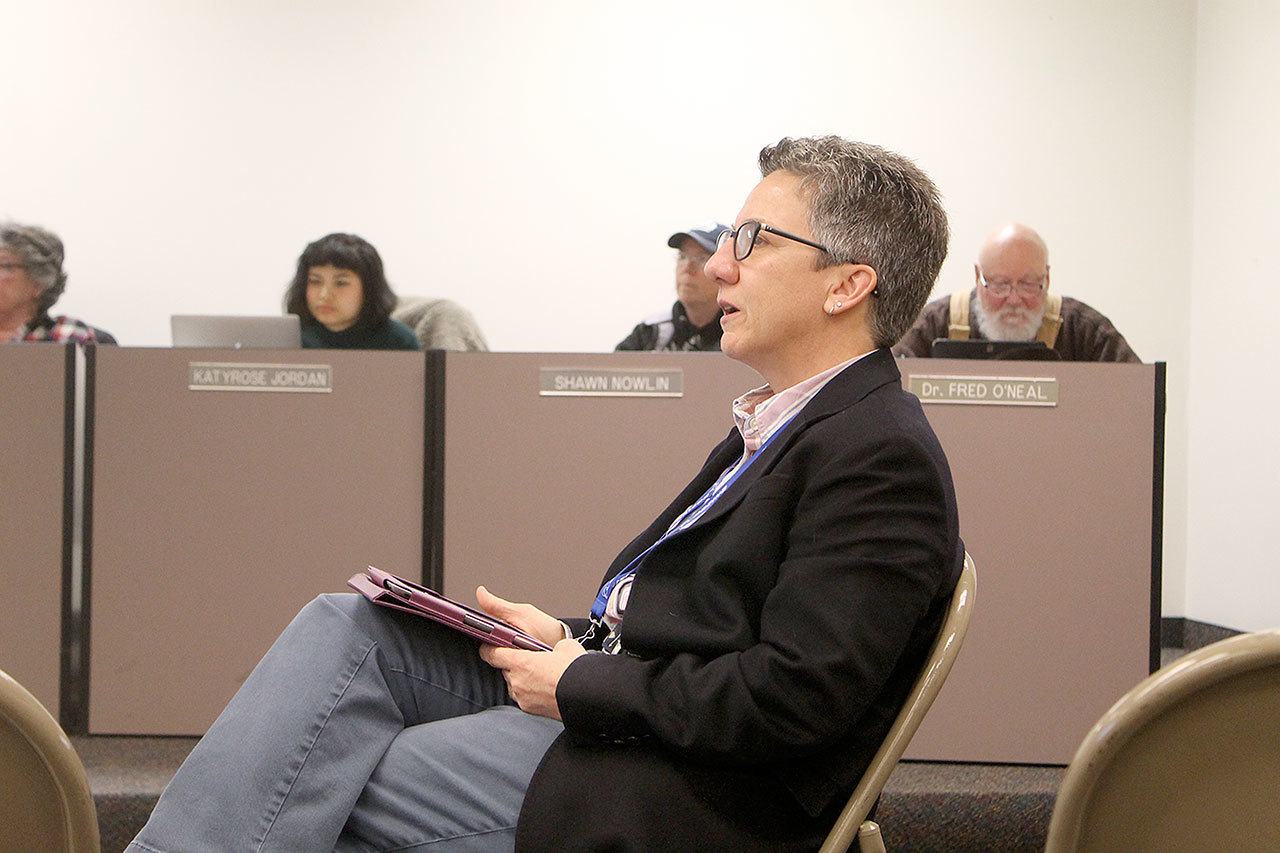An education bill recently passed by the Senate majority and now before the House could raise property taxes for South Whidbey residents in 2018 without netting a significant increase for the South Whidbey School District’s budget.
This fact, as well a levy limit drop from 28 percent to 24 percent that could result in $1 million lost over two years, has the district’s top two administrators concerned.
Assistant Superintendent of Business Dan Poolman said the Senate Republican Senate Bill 5607 would completely change the state’s education funding model.
“It’s going to increase local property taxes for schools and redistribute about half the amount across the state,” Poolman said.
Under the plan, property taxes for a maintenance and operations levy would increase from .99 cents per $1,000 of assessed valuation to $1.80 per $1,000. The South Whidbey School District would be one of 105 districts that would see an increase in property taxes, while 189 districts would see a decrease, according to the Washington Newspaper Association Olympia News Bureau.
Poolman said the idea behind the bill is to raise property taxes for communities such as Mercer Island, Lake Washington and South Whidbey then redistribute it to communities that have a lower assessed value.
Though it will help areas that typically draw fewer monies from levies, Poolman doesn’t see it as good news for South Whidbey.
“I believe for our community it’s not a good funding mechanism,” Poolman said. “It will increase local costs without increasing funding for our school district.”
The bill is part of an effort by lawmakers to abide by a 2012 state Supreme Court ruling, the McCleary Decision, that requires the state to fully fund the basic education system by Sept. 1, 2018.
“The biggest thing it does is address the McCleary Decision with a stable funding source,” Poolman said.
While increased property taxes could require deeper pockets on the part of South Whidbey residents, the South Whidbey School District’s funding is expected to drop with the levy limit drop.
“The expectation was that the legislature would fix the funding by then,” Superintendent Jo Moccia said. “Well, they haven’t fixed the funding and that cliff is approaching. If nothing is done, we lose $500,000 in each of the two years that overlaps. Basically, we lose a million dollars. That’s a huge problem.”
Moccia said districts state across the state are in the same bind and that the fear is that if the legislature takes too long to make a decision, districts will have to RIF (reduction in force) staff because they won’t know what their finances will look like.
“The sooner they make a decision, the sooner the district stabilizes,” Moccia said.
It is unclear whether the House will approve the Senate Republican plan or the House Democrats’ education proposal, HB 1843, or Governor Jay Inslee’s proposal (HB 1067), Poolman said, though he does not think HB 1843 or HB 1067 will get very far.
A consistency between the three plans is an increase in retirement rates, 13 to 15 percent, and an increase in base salaries for starting teachers, $37,000 to $45,500. The base salary increase is meant to entice more people into the teaching field, Poolman said.
Both will add a financial burden to the district’s shoulders.
“There is no reimbursement from the state,” said Poolman in reference to the retirement rates.
The Senate Republican plan would also switch from a “rational” or prototypical funding model to a per-pupil allocation, which would provide districts with a minimum of $12,500 per student with local, state and federal revenues combined, according to the Olympia News Bureau. A per-pupil funding formula is based on student and staff ratios in elementary, middle and high schools.
But, Poolman said per-pupil funding doesn’t take into account retirement rates or other fixed costs that are delegated to the district.



